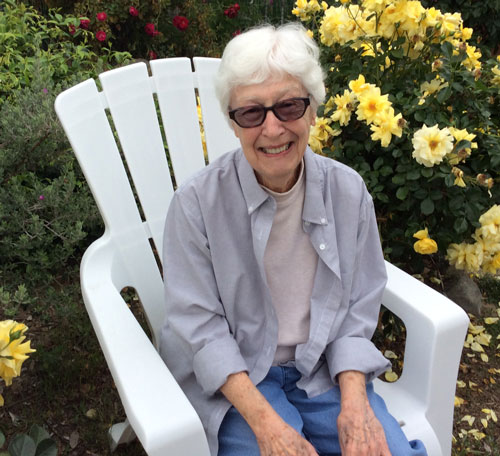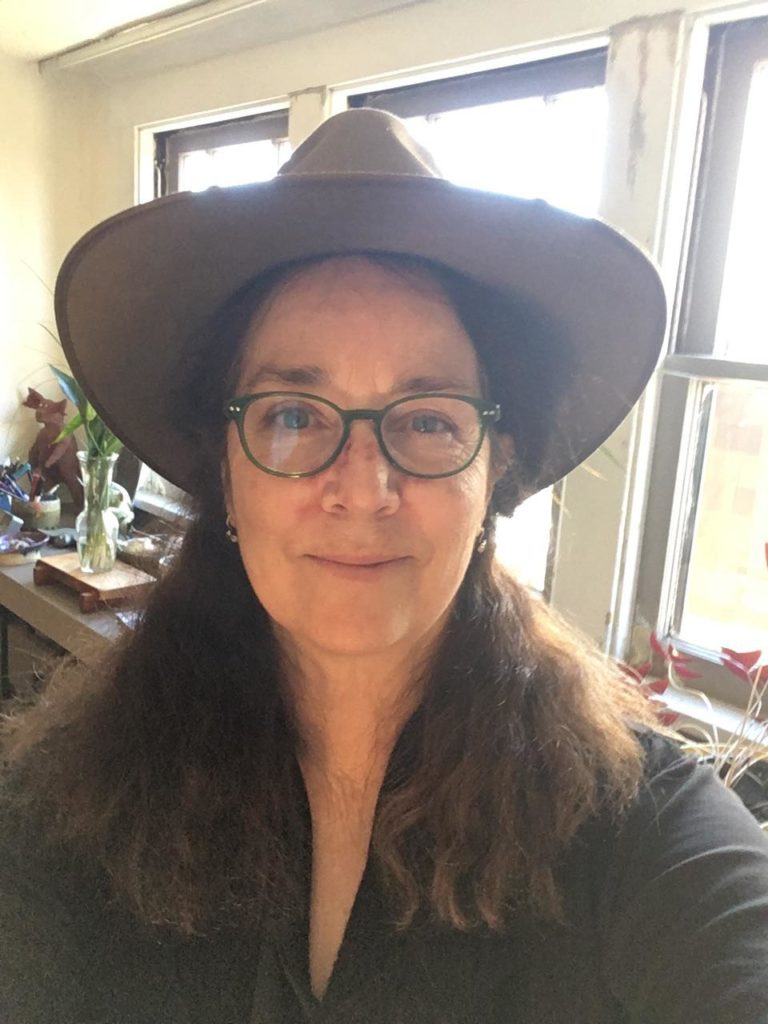


Another year, another lesson with poems by Maxine Gibson, Doris Watts and Melanie Dubose.
6 minutes
TRANSCRIPT
They say it’s 2023. And yet when I write checks, my pen still thinks it’s 2022. Why is that? That’s one thing. Another is that it’s winter — at least where I live. And that means my joints are stiff and whenever I go outside I’m hypervigilant about those little patches of ice on the sidewalk, about trying not to fall and break something that’ll take so much longer to heal than it would’ve when I was a kid. It’s a new year; I want to think new, young thoughts, but my birthday’s in early January — it’s never too late to send a card, by the way — and so for me, the new year reminds me I’m a year older. On this edition of Burning Bright, three pieces from the 2018 Passager Poetry Contest Issue about our awareness of our aging brains and our aging bodies.
Max Gibson said that this next poem reveals her magical thinking which, she said, “I probably should have outgrown, but it does capture the feeling that the spirits of loved ones lost are always close by.” Here’s her poem “Falling Bodies.”
There were no accurate clocks in Galileo’s time
but he could measure time’s passage by singing
the same ditty, over and over, at a tempo
two beats per second. He wanted to know
if a falling body accelerates uniformly.
Outside my window, ferns sway in a breeze
that cares nothing of tempo. To count to my age
today takes more than a minute if you say
One Mississippi, Two Mississippi, Three etc.
Sometimes I count my age for challenges.
Today I will do 66 sit-ups. When I was 30,
I might run for 30 minutes, hold my breath
for 30 seconds. I don’t know why I do this
or why Galileo cared how fast we fall.
Today I counted how long it takes
to fill my tea kettle with water and pretended
when it was full, I would live to be that age —
123 — which makes me middle-aged, I guess.
Sometimes when I look outside my window
I see bodies falling – mother, father, dear friends —
but no matter how high I count,
they never reach the earth.
Max Gibson’s poem “Falling Bodies.”
The mid-20th Century comedian Jimmy Durante used to close his radio show by saying “Goodnight, Mrs. Calabash, wherever you are.” Doris Watts said she wondered where Mr. Calabash was and who the lost Mrs. Calabash was and how she got to that place where she was “wherever you are.” Then, Doris realized that SHE had become Mrs. Calabash. Here’s her poem “Goodnight, Mr. Calabash, Wherever You Are.”
On the morning she lost her glasses,
she emptied the shelves of linens,
glassware, knickknacks, all of her books,
moved the furniture to the front yard.
She tore the carpets off the floors,
hauling them all into the street,
standing at last on bare concrete.
She sold off any artwork and precious metals, including gold filling
the dentist had removed last year,
the gold locket that had belonged
to her grandmother, and, of course,
the wedding ring. Yet she could not
(pray promise sacrifice confess or hymn)
find what she knew she had lost.
She sat down then on the back step,
from which, if she remembered right,
she had once been able to see
the apple tree blooming in May.
She sat down, knowing suddenly
she had come all the way to ghosts,
the glimmer of light beneath
a closed door, an unseen sound
as if feet waltzing in the snow.
Doris Watts’s poem “Goodnight, Mr. Calabash, Wherever You Are.”
Melanie DuBose said that her poem “Do I Need To Explain Forgetting?” started with the knowledge that when we can’t recall something that happened or the name of something, we often have some strong sensory memory, and then it evolved from a daydream in which she was giving the police details for an identi-kit of a missing person based solely on sensory details.
Your name is there
Somewhere
Right there
On the tip of an iceberg
Melting
In the bright sun
No . . . that’s not right
Do I need to explain
forgetting?
Besides
I can remember
I remember
The shape of your wrist
The gravity of your earlobes
The hollow in your throat
The softness of your hair
Falling
On the inside of my thigh
Your lips
Hypnotize me and I
will tell you your name
“Do I Need to Explain Forgetting?” Melanie DuBose.
To subscribe to or learn more about Passager and its commitment to writers over 50, go to passagerbooks.com. You can download Burning Bright from Spotify, Apple and Google Podcasts and various other podcast apps.
For Kendra, Mary, Christine, Rosanne and the rest of the Passager staff, I’m Jon Shorr.






